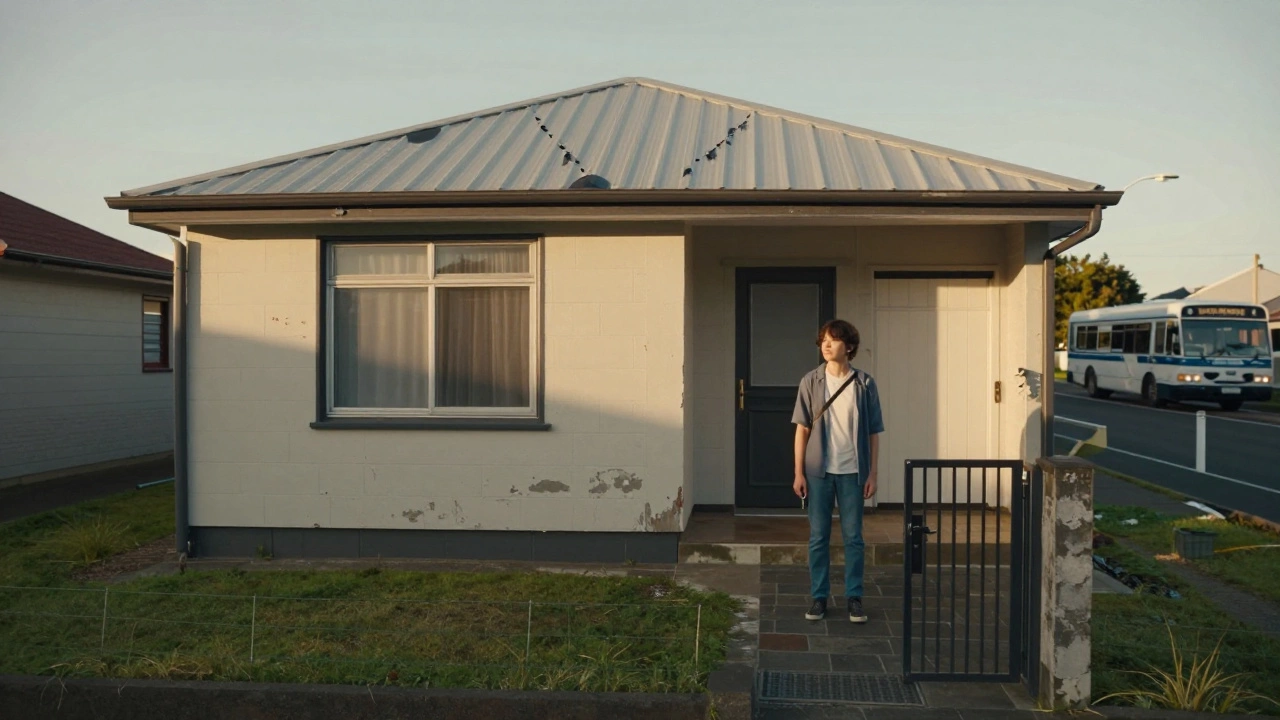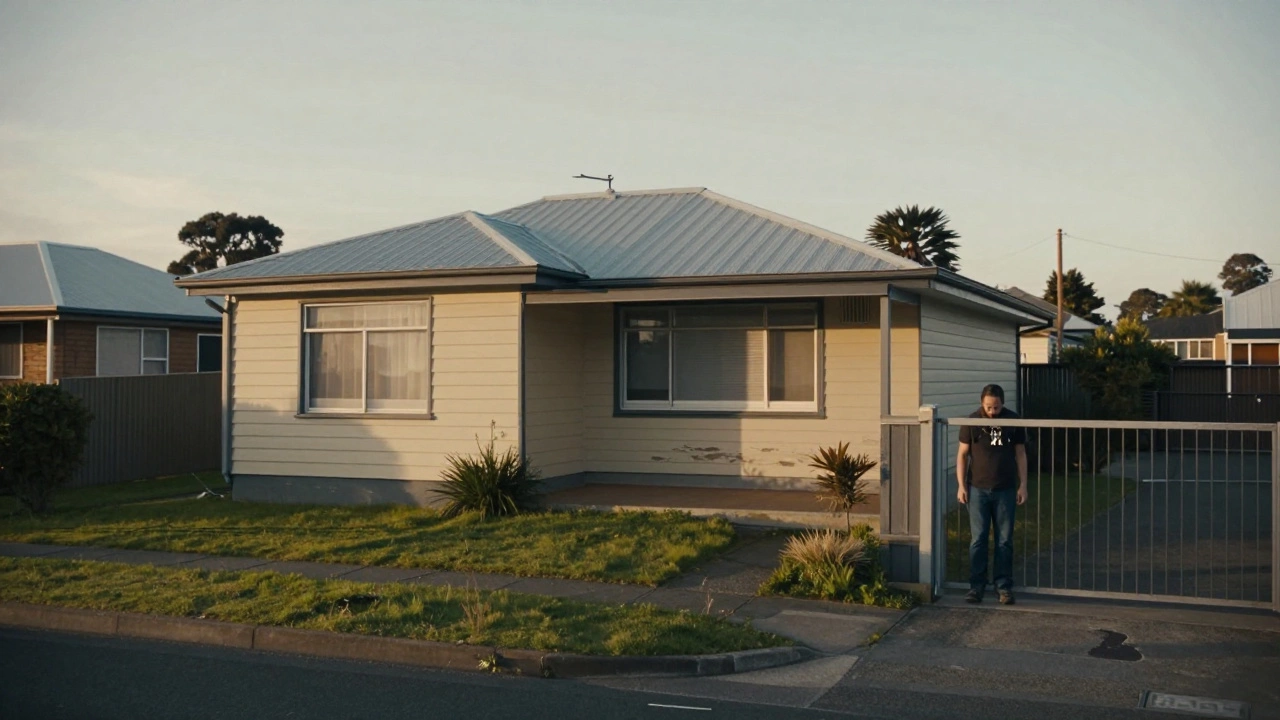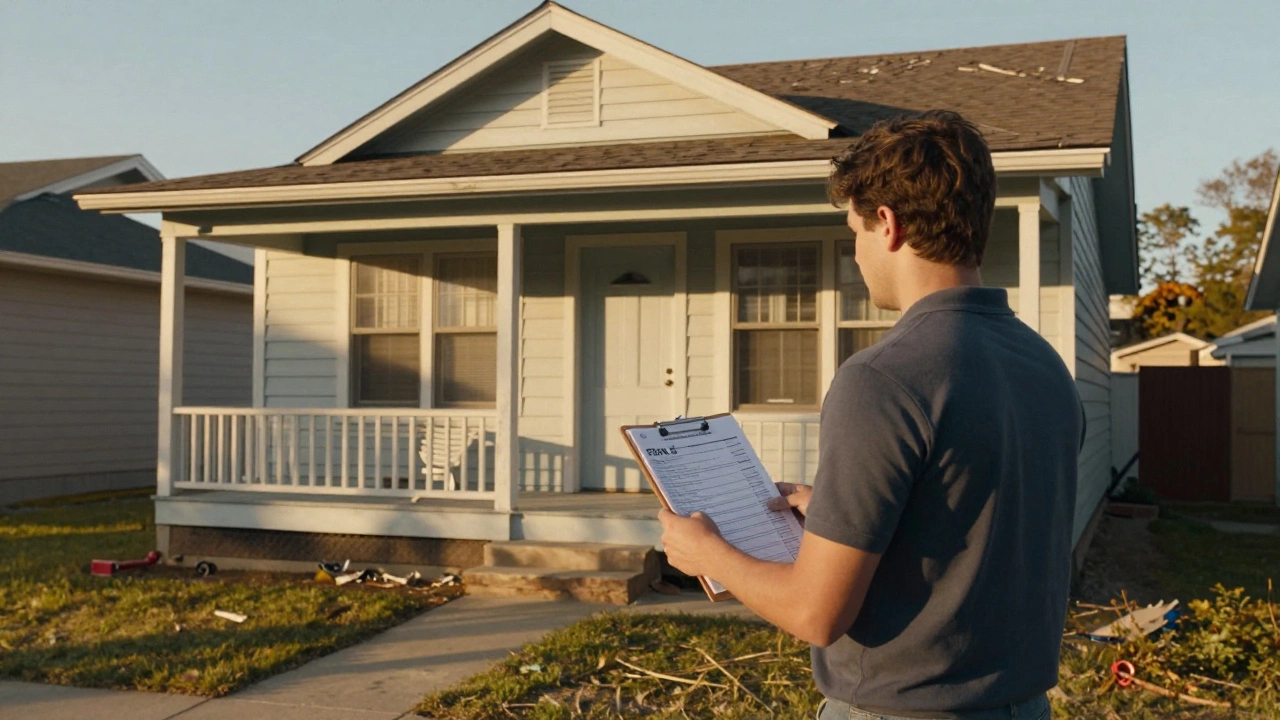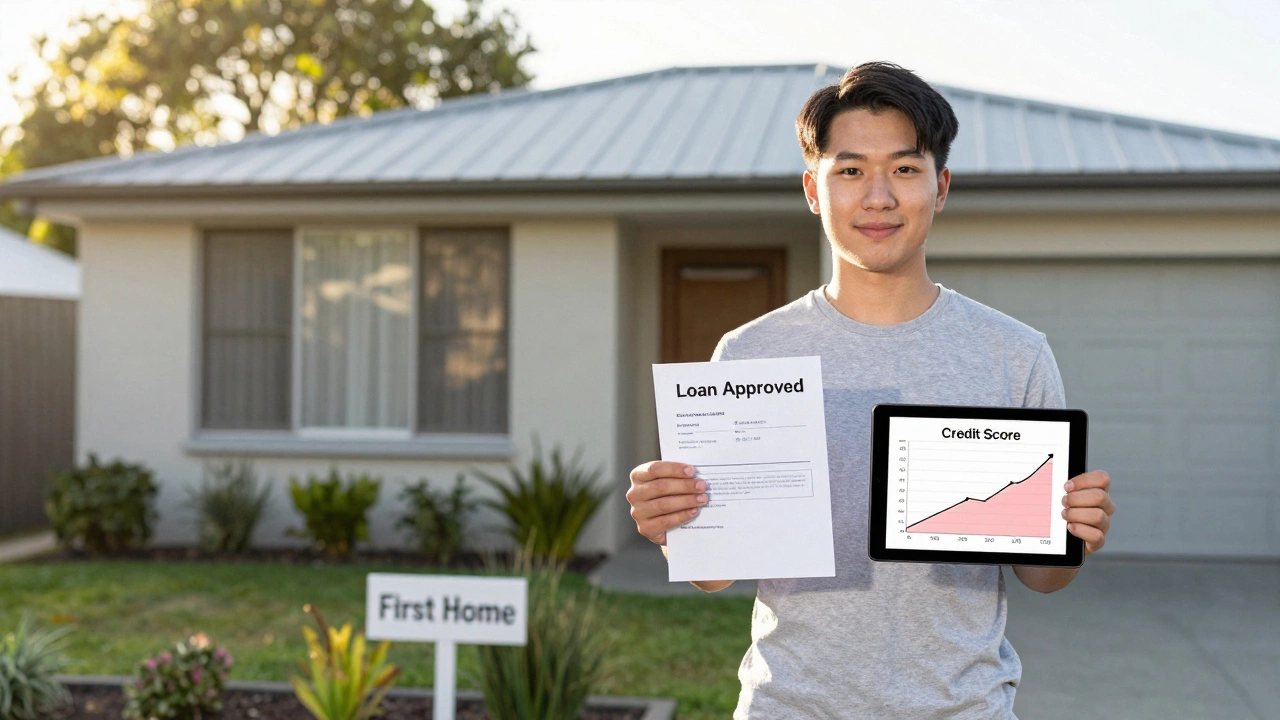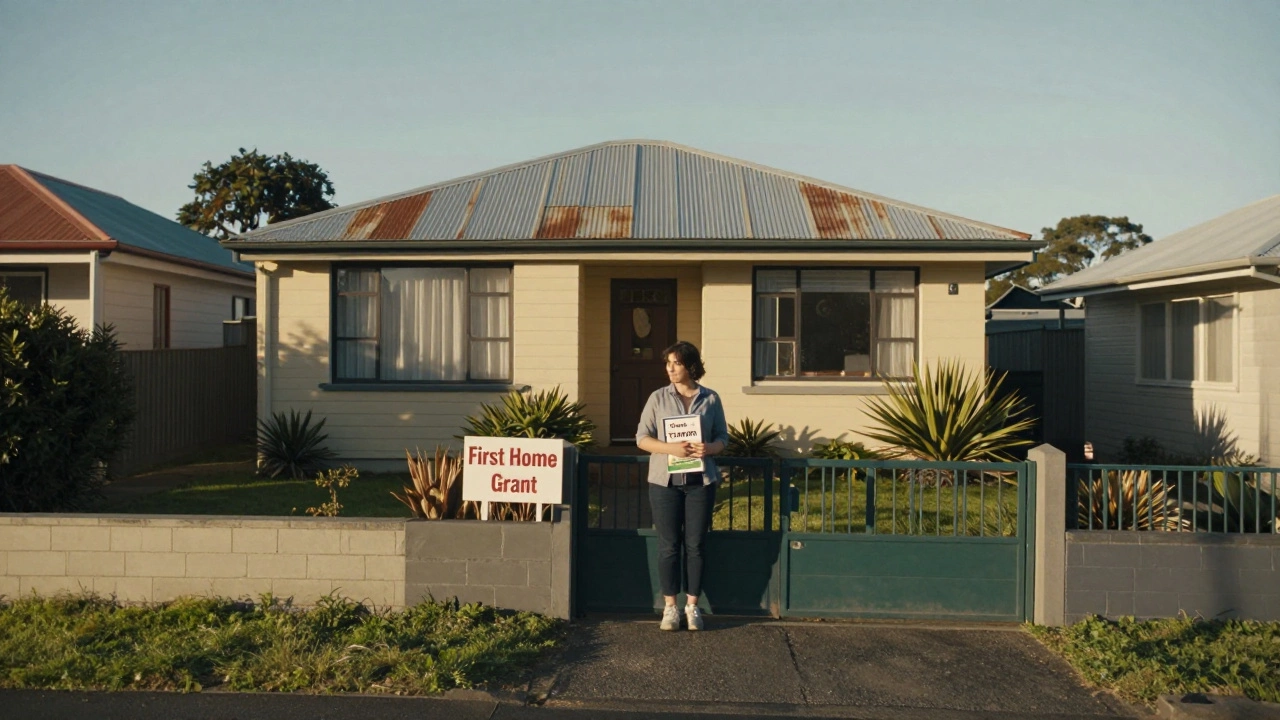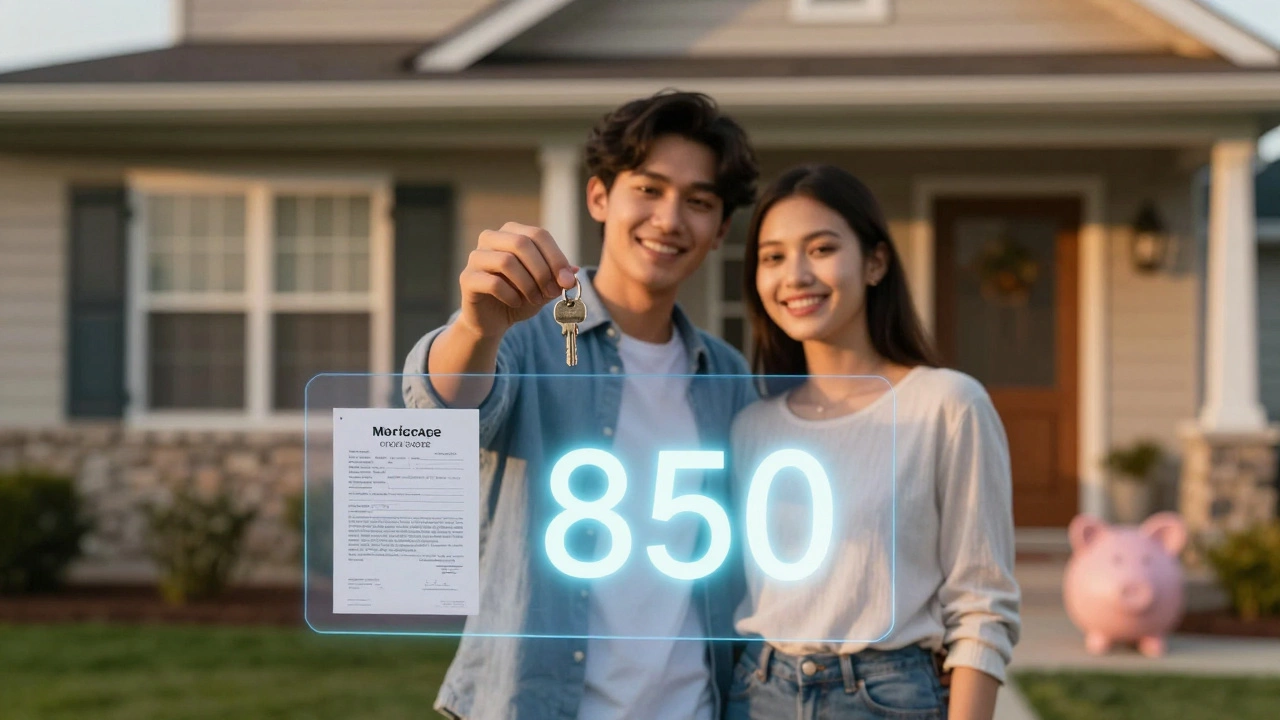With $10,000 down, buying a house in Auckland is possible through government grants and first home loans. Learn what homes you can afford, hidden costs, and how to qualify without a huge deposit.
First Time Buyers: Practical Tips to Get Your First Home
Buying your first house can feel like stepping into a maze, but it doesn’t have to be stressful. The key is breaking everything down into bite‑size steps and knowing where to look for help. Below you’ll find straight‑forward advice on budgeting, credit, down‑payment options, and the best programs that can make the process cheaper and faster.
Understanding Your Budget & Down Payment Options
Start with a clear picture of how much house you can actually afford. A common rule is to keep your monthly mortgage payment—principal, interest, taxes, and insurance—under 30 % of your gross income. Use an online calculator or simply multiply your monthly pay by 0.3 to get a rough limit.
Next, figure out how much cash you can put down. While a 20 % down payment avoids private‑mortgage‑insurance (PMI), many first‑timers get by with far less. Some lenders accept 3 %–5 % down, and there are grants that can cover part or all of that amount. If you have $3,000 saved, you might still qualify for a loan with a low‑down‑payment option, especially if you pair it with a down‑payment assistance program.
Don’t forget hidden costs: closing fees, moving expenses, and a small reserve for repairs. Adding these to your budget prevents unpleasant surprises after you sign the contract.
Programs & Loans That Can Help First‑Time Buyers
Many states run special schemes for people buying their first home. In North Carolina, for example, the NC Down Payment Grant can give you up to $15,000 if you meet income and credit criteria. Virginia offers similar help through the VHDA loan program, and Ohio has its own set of incentives. Check the local housing authority website or ask your mortgage broker about state‑specific assistance.
FHA loans are another popular route. They let you qualify with a credit score as low as 580 and as little as 3.5 % down. The downside is you’ll pay mortgage‑insurance premiums for the life of the loan, but the lower entry barrier often outweighs that cost for new buyers.
If your credit score is in the 700‑plus range, you’ll see better rates and may qualify for conventional loans with low down‑payment options. For scores around 620–650, a small boost—like paying down a credit card—can shave points off your interest rate.
Finally, don’t overlook local non‑profit programs. Many charities partner with lenders to offer zero‑interest loans for closing costs or home‑buyer education courses that can improve your loan terms.
By combining a realistic budget, a clear down‑payment plan, and the right assistance program, you can turn the dream of owning a home into a real, affordable reality. Start gathering your documents, check your credit, and reach out to a trusted advisor today—you’re closer than you think.
Learn how to talk to an estate agent in New Zealand with confidence. This guide gives first-time buyers clear steps to ask the right questions, spot red flags, and find an agent who truly works for you.
If you earn $36,000 a year in New Zealand, buying a home is possible-but only with smart planning, government help, and realistic expectations. Find out what you can afford in Auckland and beyond.
Virginia offers multiple down payment assistance programs for first-time buyers, including grants up to $25,000 and low-interest mortgages. Learn how to qualify, apply, and avoid common mistakes.
The NC Guarantee Grant helps first-time home buyers in North Carolina cover down payments and closing costs with money that doesn't need to be repaid. Up to 5% of the purchase price is available, with income limits and home price caps applying.
FHA-approved homes must meet strict safety and structural standards. First-time buyers need to know what makes a house eligible for an FHA loan-and what can cause a denial.
You can buy a $100,000 house with as little as $1,000 down-or even nothing-depending on your loan type and location. This guide breaks down down payment options for first-time buyers, hidden costs, and how to qualify.
For a $100,000 home loan as a first-time buyer in New Zealand, aim for a credit score above 650. Lower scores can still work with a bigger deposit or guarantor, but interest rates will be higher. Clean credit and steady income matter more than perfection.
On a $70,000 salary in Auckland, you can afford a modest home with a solid deposit and smart budgeting. Learn how much you can realistically buy, what grants are available, and where to look in 2025.
With house prices in Auckland still high, many first-time buyers wonder if $10,000 is enough for a deposit. The answer is yes-if you know where to look and how to use government grants and KiwiSaver. Real homes under $100,000 exist, and you don't need 20% to qualify.
Buying a house with no money down might seem tempting, but it’s risky for first-time buyers in New Zealand. Learn why saving even a little makes all the difference - and what real alternatives exist.
A 900 credit score doesn't exist - lenders use an 850 cap. Learn what it really takes to hit 800+ as a first-time homebuyer and how to get the best mortgage rates without chasing impossible numbers.
